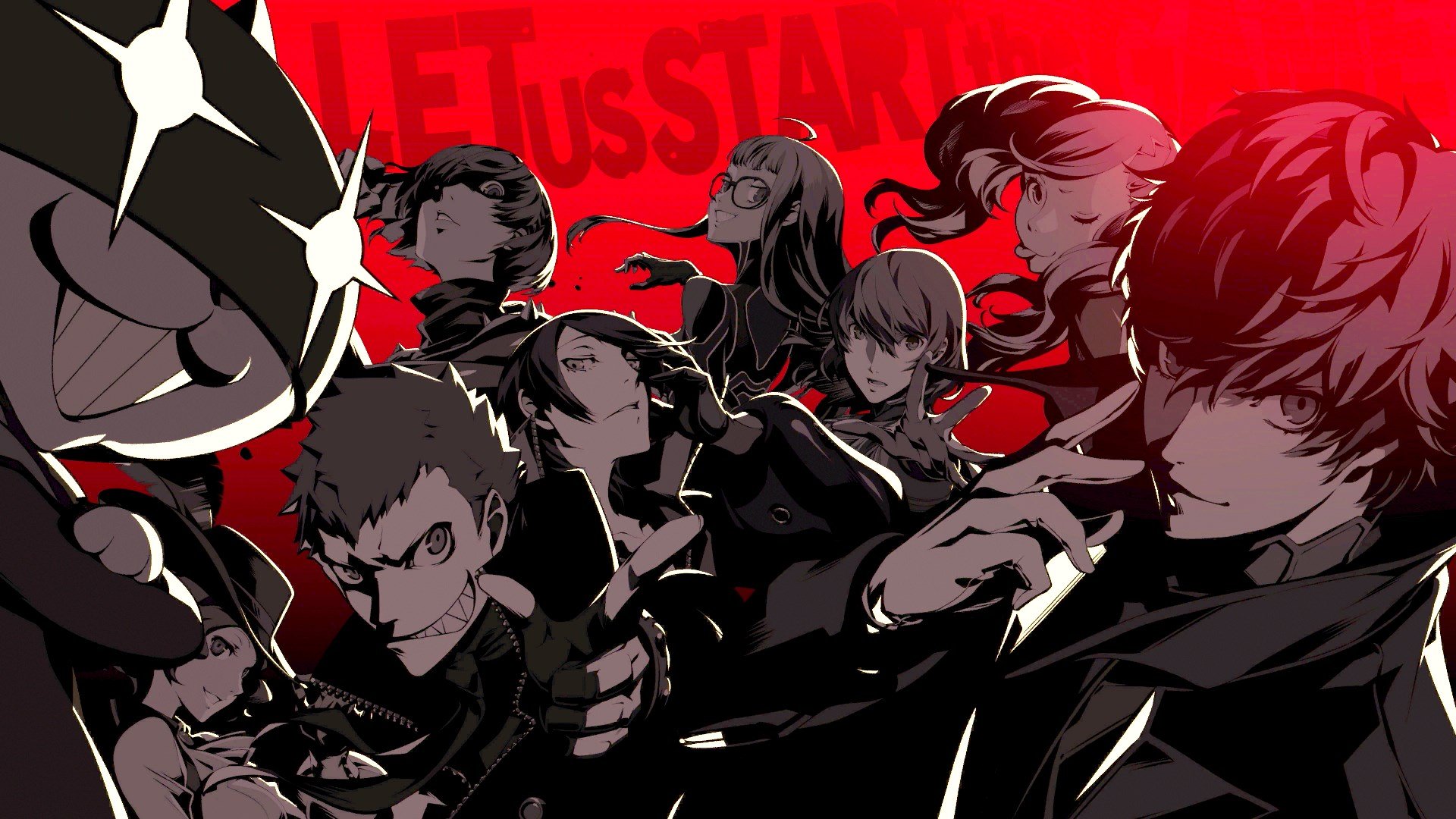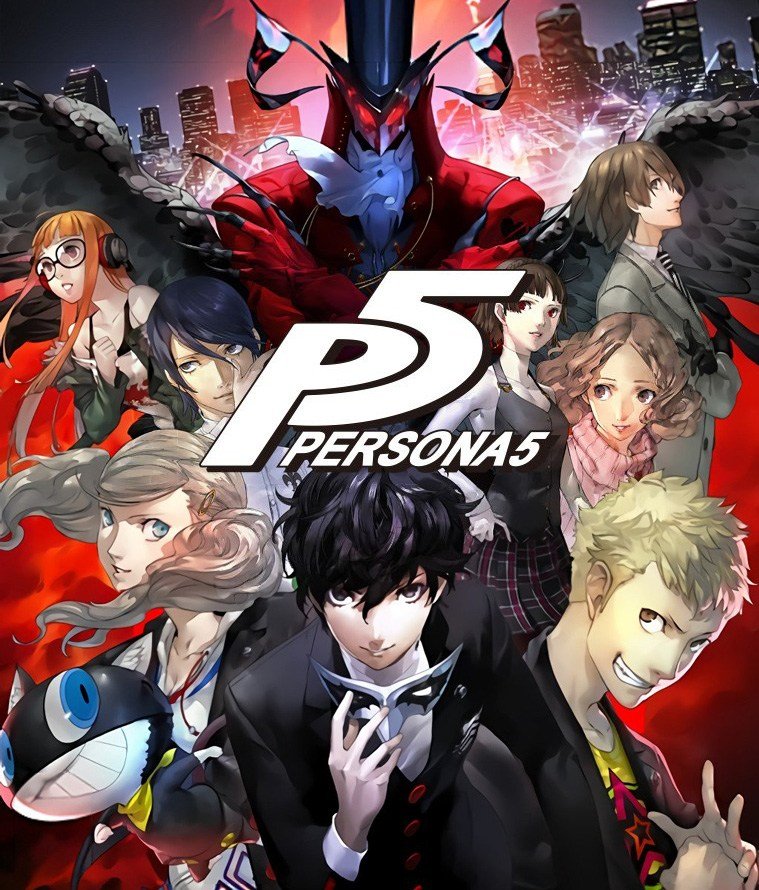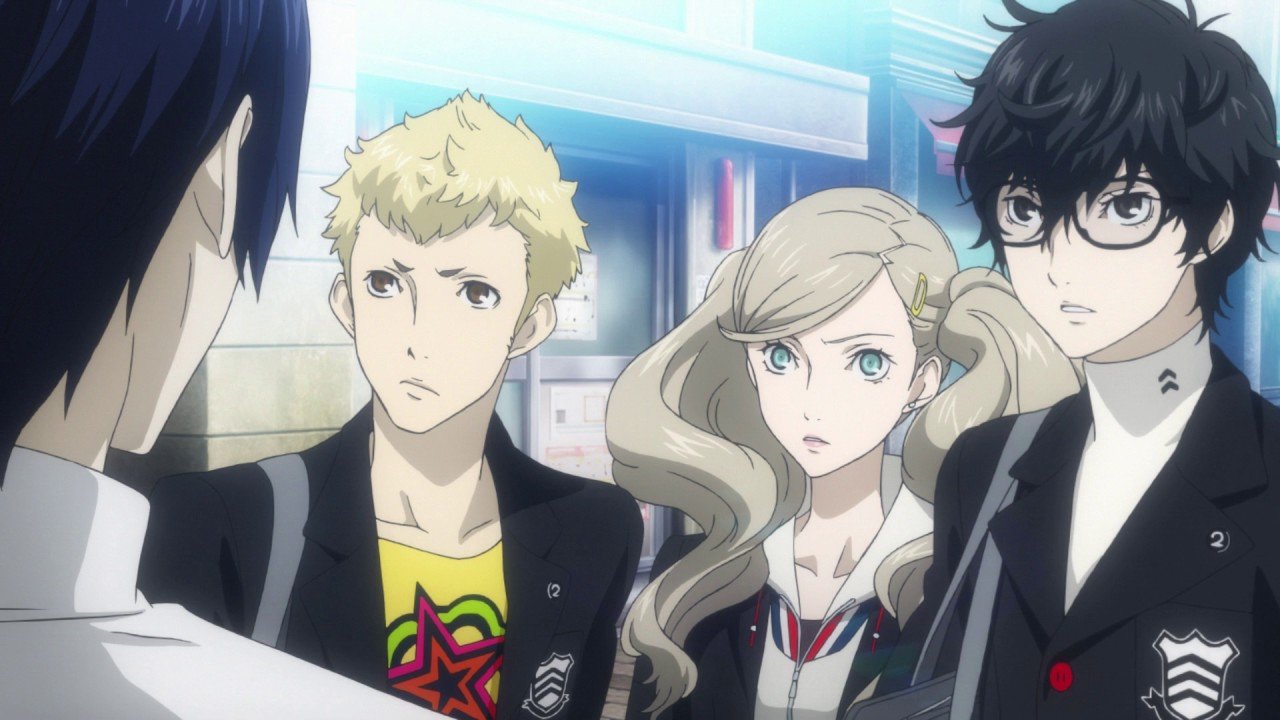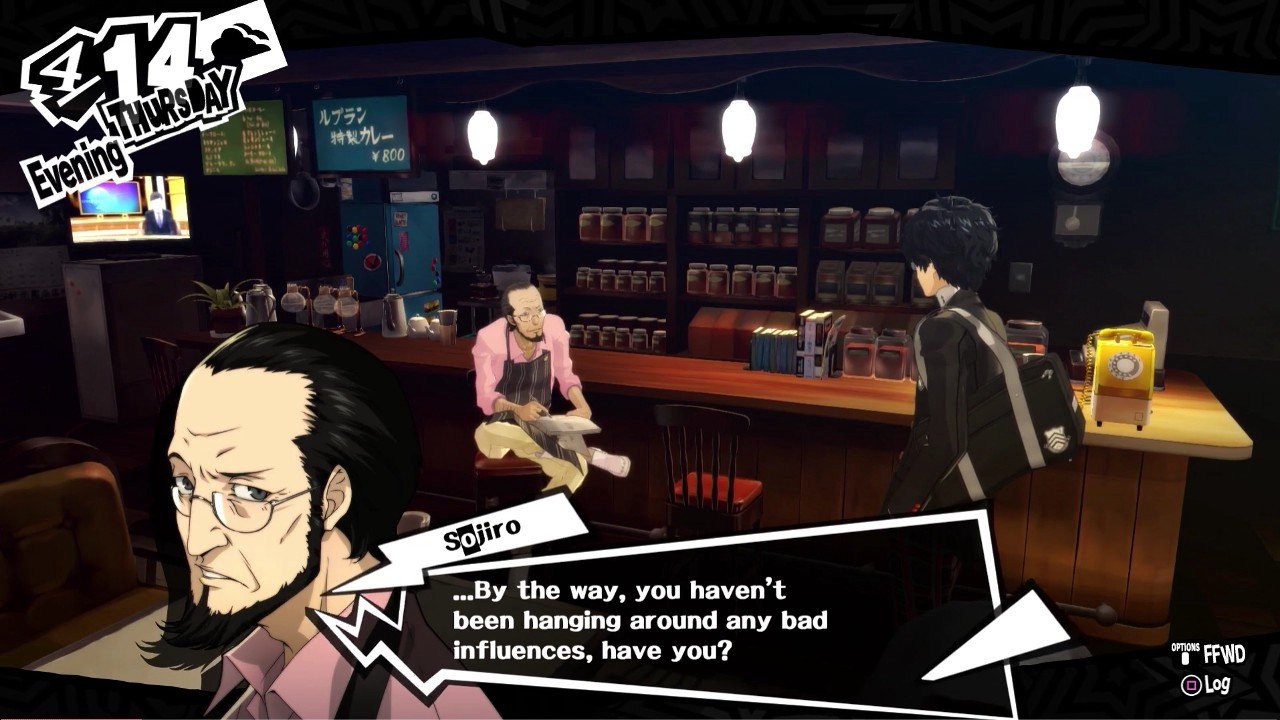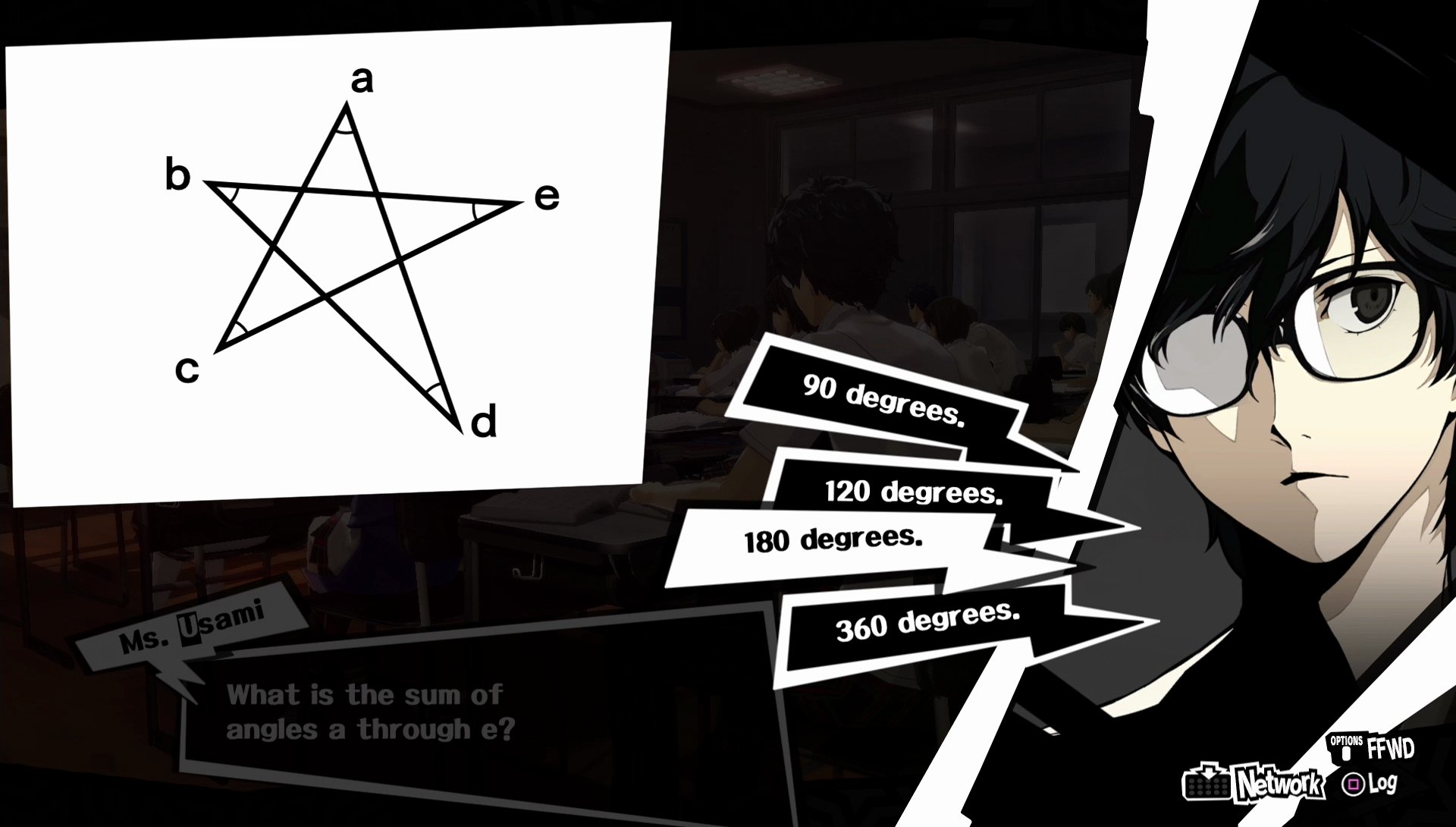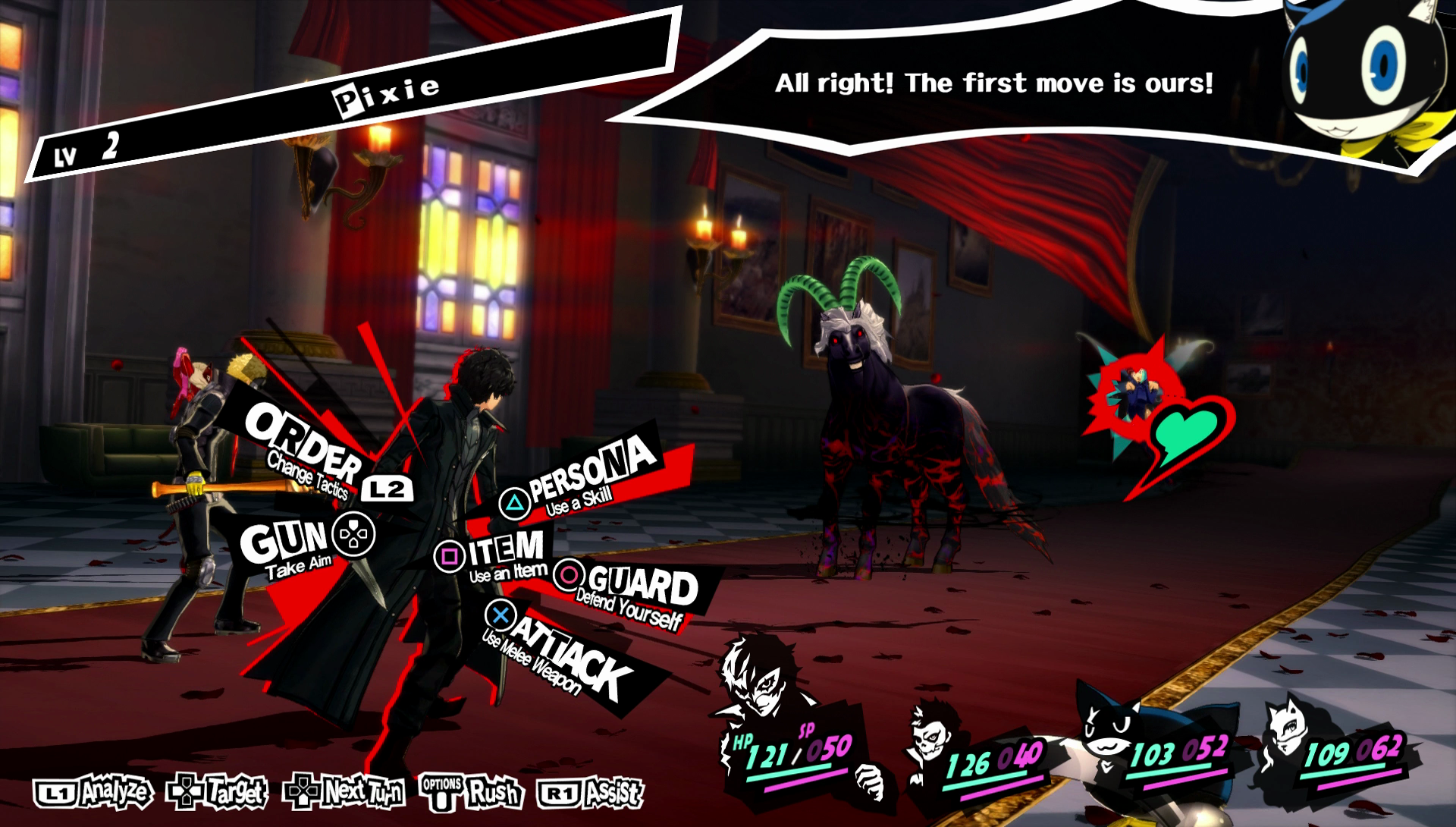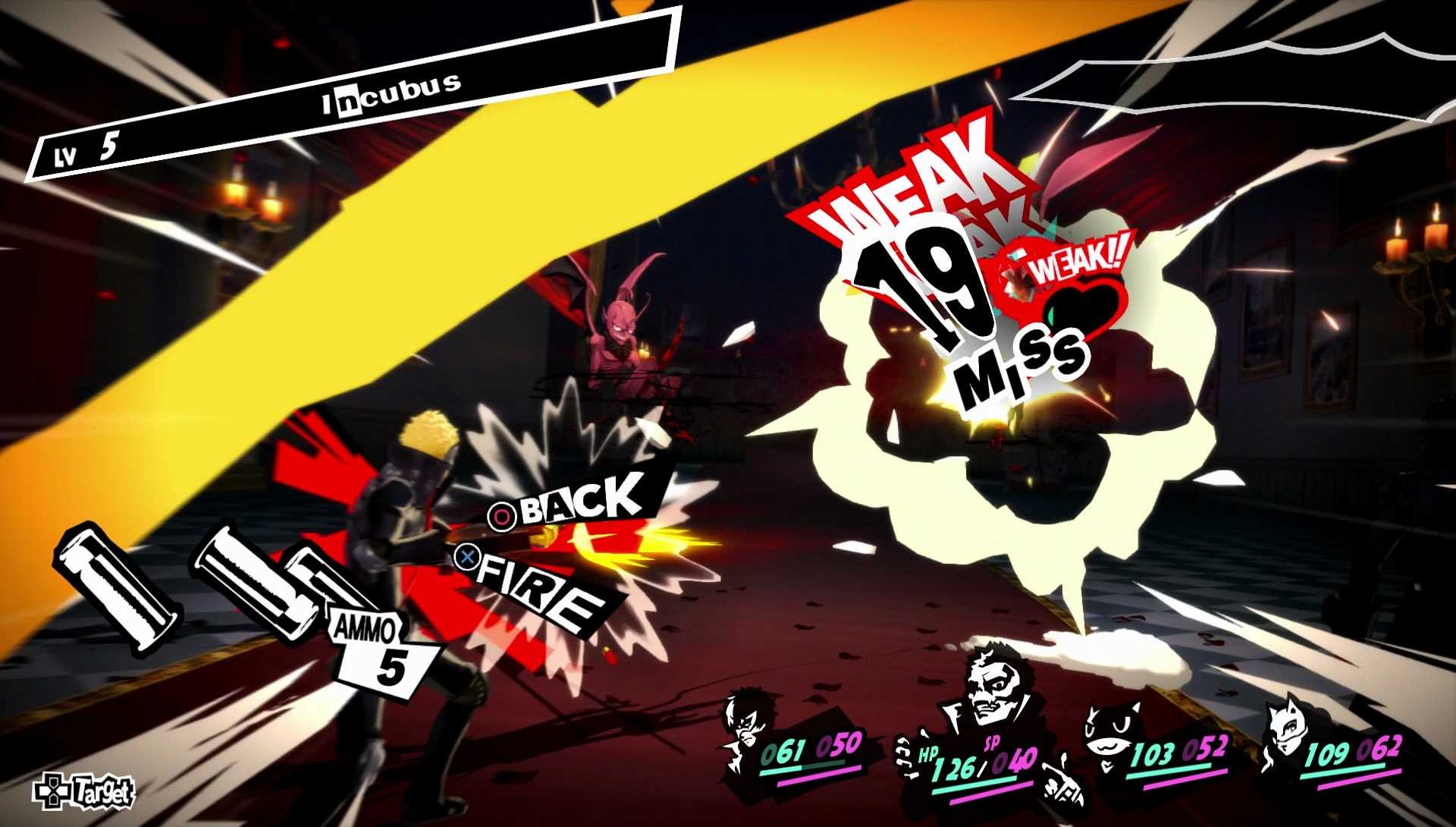Persona 5 review
I can clearly remember back in 2016 when every single video games journalist couldn’t stop talking about Persona 5. It became a recurring topic, something that a few people (particularly people I respected) talked about among their favorite games of all time. Persona 5 became a sort of measuring stick for Japanese RPGs, and specifically as a way of bringing that beloved series to Western audiences.
Compare that to the other side of things. Sure, the game received overwhelming praise. But those same people talked about spending dozens of hours sitting in a Japanese boarding school, or working a part-time job, or building romantic relationships with other students (or even teachers). And there was also the running gag that no one had ever beaten Persona 5 because of the slow, plodding pace and 120-hour average playtime.
In other words, it sounded a whole lot like everything that weirded me out about anime; why would I want to play that in video game form?
When I walked into Gamestop and got my PlayStation 4 last Christmas, the only game I picked up was a $5 pre-owned copy of Persona 5. For that price, I figured I’d give it a shot.
And now it is by far one of my favorite games of all time.
What a strange twist.
Beneath the mask
Don’t misunderstand me: Persona 5 is just as bizarre as it sounds, if not more so. It’s a game about a group of teenagers who use spiritual magic to go into people’s subconscious (not unlike Inception) and change their corrupt desires.
In other words, these kids are mystic vigilantes who change villains’ hearts from the inside out.
Kim and I spent 145+ hours wandering through Tokyo as a young man trying to find his place in the world. We aced our exams, saved up thousands of yen working odd jobs, and poured hours of our lives into getting to know neighbors and other students.
And we loved all of it. In some games, this kind of experience would seem like pointless side quests. But Persona 5 leans into it. As a result, I felt just as attached to some of these characters as I do to the heroes of my favorite book series. Because I didn’t just interact with them for a day, or a week, or a month.
Persona 5’s story spans an entire year. There’s no skipping days or fast forward. The only choice is to play out each day of the protagonist’s life, juggling the routine activities of “Hercules Bimbo” with the nighttime escapades of Joker, leader of the vigilante Phantom Thieves. And that forced immersion absolutely achieved its goals, at least in our case.
Okay, I’ve done a bit of tiptoeing around Persona 5’s story. I definitely don’t plan on spoiling anything, but I can certainly lay out the premise in more detail, as well as going over at least the core mechanics. (Because with so many weird activities and stats, it’s literally impossible to cover everything here.)
Into the Metaverse
The game begins with the protagonist—who players can name—being sentenced to what amounts to a juvenile detention. Except instead of going to a prison facility, he is sent to live with a total stranger away from family or friends. It’s both a fresh start and also a kind of supervised...well, detention.
His clean slate is what allowed me to shape the personality of my character, Hercules Bimbo. Yes, I could choose different dialogue options that shaped how people saw him. But I could also choose how he spent his time, from part-time jobs to hobbies to hanging out with classmates from Shujin Academy.
That academic life also amounts to a big part of the story. Much of the narrative centers around Shujin, both as a starting point for the Phantom Thieves’ mission to “steal hearts” by erasing twisted desires. Shujin is also a sort of home base where Hercules makes friends and builds relationships over the course of the entire game.
There are classroom “quizzes” where the teacher called about Hercules; answering a question correctly gave a stat boost, as did studying in the evenings or reading certain books. In fact, every activity has some sort of reward—the only problem is there’s never enough time to do everything.
In a strange way, that’s the most challenging thing in Persona 5: There’s just not enough time. The game forced me to make trade-offs. I couldn’t maximize all of my skills, or develop every possible friendship, or raise enough money to purchase every upgrade. And I think that all but guarantees that everyone’s playthrough is at least a little different from the rest.
Endless days
Persona 5 is a unique game, and it embraces all of its quirks; the music and art are just outward representations of how much style it has. I mean, the game goes from the streets of Tokyo to the Metaverse, a subconscious realm where the Phantom Thieves handle their vigilantism.
Honestly, it’s almost impossible to break down the gameplay. As Hercules Bimbo, I lived an average teenage life—something that felt familiar, even if I’ve never visited Tokyo or been convicted of a crime. But then Persona becomes a wholly different game when Hercules puts on his costumes as Joker, the leader of the Phantom Thieves.
Joker spearheads the team’s fantastical heists in the twisted mind palaces, which is where I learned traditional “gameplay” elements of an JRPG. The turn-based combat is tactical instead of action-heavy, but there are a lot of factors involved. Different companions have different abilities. The protagonist can capture different personas—kind of like supernatural Pokémon—with varying abilities, vulnerabilities, etc.
Actually, that might be the best comparison. The day-to-day activities feel a bit like Life is Strange meets The Sims, blending relationship building with skill development. Meanwhile, the Metaverse feels like Oceans 11 with Final Fantasy combat and imaginary Pokémon.
It’s all crazy, and the more I try to explain it, the harder it gets.
But I loved it.
Author’s note: Persona 5 covers some heavy topics, although not without some uncomfortable sexualization (particularly with teenagers involved). That might be a common thing in anime but it was a culture shock for me. However, the game also addresses the emotional and physical trauma that these students deal with, from bullying to attempted suicide. Those hardships add even more depth to the relationships I spent so much time developing.
In a nutshell
I have never played anything like Persona 5, and even after 145+ hours I have absolutely no idea how to pitch the game to someone. You can watch gameplay videos or reviews on YouTube, but the only way to get a complete picture is to play it for yourself. And once you do, it still might take you 5-10 hours to figure out if you love it or hate it. The game is wholly unique, and the fact that it balanced so many insane and disparate ideas is a testament to the creative genius of the development team at Atlus.
Obviously, it’s hard to make any sort of comparison when it comes to Persona 5. But I did recommend it to a friend who had loved Life is Strange, and I still think that’s probably my best bet. (The combat is much more like a turn-based RPG; think about Child of Light’s battles, or even something like Pokémon.)
Pros
+ Outstanding art direction
+ Meaningful characters relationships
+ Tactical combat encounters
+ Delicate subject matter
+ Powerful lasting impression
Cons
- Unnecessarily long finale
- Shallow inventory system

